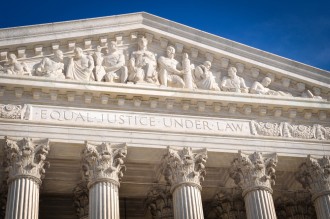
April 29, 2016
Venue for Patent Infringement Cases is Well Established; a Corporate Defendant can be Sued Wherever it Can be Found
In In re TLC Heartland LLC, [2016-0105] (April 29, 2016), the Federal Circuit denied Heartland petition for mandamus directing the District of Delaware to either dismiss or transfer the patent infringement suit brought by Kraft against Heartland in the District of Delaware.
Heartland is a limited liability company organized and existing under Indiana law and headquartered in Indiana. Heartland was not registered to do business in Delaware, has no local presence in Delaware, has not entered into any supply
contracts in Delaware or called on any accounts there to solicit sales, although it did admit to shipping 44,707 cases of the accused product to the District of Delaware that generated at least $331,000 in revenue.
The Federal Circuit found that Heartland failed to show its right to mandamus was clear and indisputable, rejecting the argument that Heartland did not reside in Delaware for purposes of 28 U.S.C. § 1400(b), and rejecting the argument that the District Court lacked specific personal jurisdiction.
The Federal Circuit rejected Heartland’s contention that amendments to the venue statute statutorily overruled VE Holdings‘ determination 1988 amendments to the venue statute made the definition of corporate residence in the general venue statute, § 1391(c), apply to the patent venue statute, 28 U.S.C. § 1400.
The Federal Circuit also rejected Heartland;s argument that specific jurisdiction only gives the court jurisdiction over those acts occurring in the district. The Federal Circuit rejected the result that to get jurisdiction over all of the acts of infringement, Kraft would have to sue in each state, or sue defendant where it is incorporated.
Venue continues as it has since VE Holdings — a corporate infringer can be sued wherever it can be found.




































